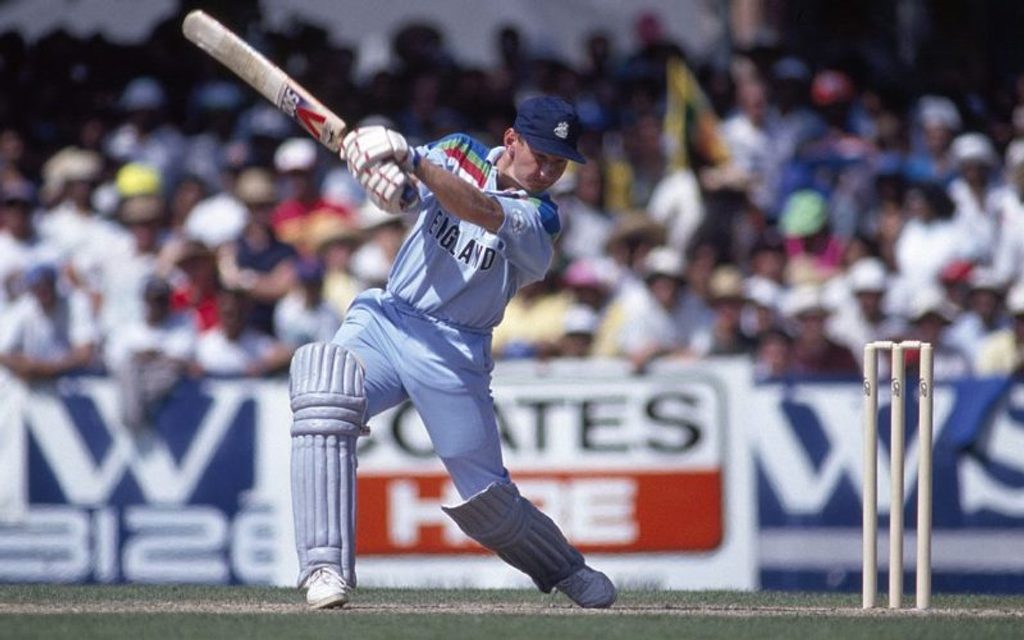
Neil Fairbrother was quintessentially a limited-overs batsman, who employed smart and efficient ways to get the job done in white-ball cricket. He emerged as England’s leading batsman during their impressive run at the 1992 World Cup.
First published in 2010
There wouldn’t be too many Hall of Famers when it comes to English one-day players, would there? Graeme Hick would be one. Probably Paul Collingwood. Marcus Trescothick. Eoin Morgan, maybe? Alec Stewart, most likely? But to put together a definitive best XI would be a matter of much conjecture.
But undeniably, in at number five would sit Lancashire’s Neil Harvey Fairbrother. His left-handedness and dob-and-scamper mid-innings style became the blueprint for a facet of the game that became known as finishing. And to be regarded as a finisher is to be in a smaller club still.
To be on that list of curtain-pullers is a badge of merit of the highest order. Few are awarded the epithet. Fewer still have anywhere near deserved it. But along with Australia’s Michael Bevan – a veteran of 232 ODIs, but only 18 Tests – in Neil Fairbrother England had their equivalent. That pair knew how to get the job done.
Fairbrother played just 10 Tests but featured in 70 one-dayers, his run-’em ragged style of one-day batting proving that it wasn’t just a matter of heft and might. In a game set up with a ‘hit out or get out’ mandate, few have managed to, so accurately, weigh up the value of their wicket against the advancement of the score. Sticking or twisting has been forever the gambler’s dilemma. Fairbrother rarely read his cards incorrectly.
As a Test player, he looked nervous and jumpy in his stroke-play. His trademark glide to third man got him into trouble at Test level rather than out of it, as it did in the short-form.
 Fairbrother led England’s run-scoring charts at the 1992 World Cup, aggregating 285 runs from seven innings at 57
Fairbrother led England’s run-scoring charts at the 1992 World Cup, aggregating 285 runs from seven innings at 57
As an ODI specialist, he was at his peak during the 1992 World Cup in Australia and New Zealand. A run of consistent scoring proved the backbone for Graham Gooch’s men’s run to the final. His 75 not out against South Africa at Melbourne was arguably a career-best. Against a much-fancied attack, Fairbrother did what Fairbrother should. He split gaps. He pierced tight-set fields. And he ran as though his jockstrap was on fire.
He played his last ODI in 1999, and was never regarded as a true England great, although 47 centuries for his beloved Red Rose county is testament to his all-round class. Retirement from the game in 2002 saw him switch to player management, with Andrew Flintoff one of his charges. In that field, ‘Harvey’ is one of the good guys. He was certainly good enough on the field.








